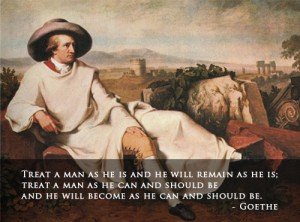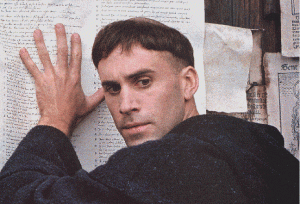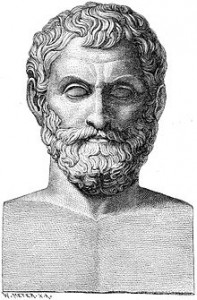Maslow and Redemption
Maslow is recognized as the one most responsible for making humanistic psychology a formal branch of psychology. Humanistic psychologists believe that every person has a strong desire to realize his or her full potential, to reach a level of self-actualization. Self-actualization is defined as the innate human tendency toward wholeness, the person is open to experience and embrace the higher values of human existence.
I think that this is related to redemption because we do not really understand our full potential until we see what God can do in our lives. We cannot achieve things on our own, we will always need God’s help. The only way that we can get that help is to trust in him. This is where redemption comes into play. I think that Maslow described how we can also be afraid of our future and not want to put our trust in God. He called this the Jonah complex. It is defined as fear of one’s own greatness or running away from one’s best talents. We have great potential, but we cannot achieve such goals without God in our lives. He will always pave the way for us. Although sometimes it may be difficult. Maslow hits on how important self-actualization is for a person. I think that we can only achieve self-actalization through the Lord. He will help to show our potential and what we can do with our talents. Even though sometimes we may doubt ourselves, we must remember to put our trust in him. Redemption fits Maslow well because to reach the highest hierarch of needs, self-actualizaiton, we cannot do it alone. We will need guidance and encouragement, something that God will always provide us with as long as we trust in him.




Hillary Richardson on Rousseau and the ongoing creation
11:46 am, 10.05.13
I love the concept of looking at Rosseau’s views as creation as opposed to the fall. I agree that the way he talks about man is an example of creation. Conflict would seem to make man fall, but the way that Rosseau discussed the subject, it would seem that man is always in a good state. Things may happen to make us think that we are not in that state, but in his view, sin is us not being able to comprehend what we have possibly done wrong. Although I would have probably categorized Rosseau in the fall category, I really enjoyed reading your aspect of putting his views in creation.
Hillary Richardson on Kant Can't
11:39 am, 10.05.13
I think that it is quite interesting that you put Kant under redemption. Based on what we talked about in class, that is not what I would personally classify him under. I would have to agree that he would fit well in the fall because of his views with science. I only say this because most of us look at redemption as a large section of religion, which he did not really believe in. Redemption is about knowing that we are forgiving and trusting in someone greater than ourselves. However, I did enjoy reading your post. I would have never thought to put him in redemption. I do agree that he can be put under there for some of his views.
Hillary Richardson on Thomas Aquinas- Redemption
11:32 pm, 09.23.13
I think that this is a great way to look at redemption! I think that most of us would agree that our faith can not really fit into one category. Yes we have rules and guidelines, but you could be the richest or the poorest and still have Christ in your heart. Combining faith with reason I think helped show the people of that day that many different things were possible through God and reason helped to explain the unexplainable. I really enjoyed reading your post!
Hillary Richardson on The "Jewish Plato"
11:29 pm, 09.23.13
I think that it was a great comparison to put Philo in creation. I agree that our world today would probably not put him in the redemption stage. His dependence for God does show that creation plays a big role in the way that he thinks and portrays his philosophy. I agree with him that our knowledge comes from God and putting that in the creation category is an awesome way to look at his perspective. God “created” our knowledge and that seems to be what Philo is getting at.
Hillary Richardson on Averroes and Redemption
11:24 pm, 09.23.13
I totally agree with you! Redemption is about knowing that there is something out there that can save us. Also, I do agree that redemption is more about the person and not just what happens after we pass on. Redemption is not only about our forgiveness, but it is also about how we have the right to have meaning to our lives.
Hillary Richardson on Heraclitus and Creation
11:31 pm, 09.09.13
I loved what you said about God is always working in our lives! I totally agree and I would categorize that in creation. That was a great perspective to present! The river analogy is a great way to describe creation and show how our lives will always be different, no matter how much we want it to stay the same sometimes.
Hillary Richardson on Epicureanism and Redemption
11:27 pm, 09.09.13
I agree that redemption goes along well with Epicureanism. Having a balanced life is very important. We do not reach a “good life” without understanding that we need to have things balanced out. Happiness comes to those who are balanced!
Hillary Richardson on Aristotle- Creation
11:22 pm, 09.09.13
I agree with you Lindsey! Knowing where we come from and why it exists goes along well with creation. Human life has many different questions, but the most basic seems to be where did we come from and where did all of this come from? This seems to go along well with the creation view point!